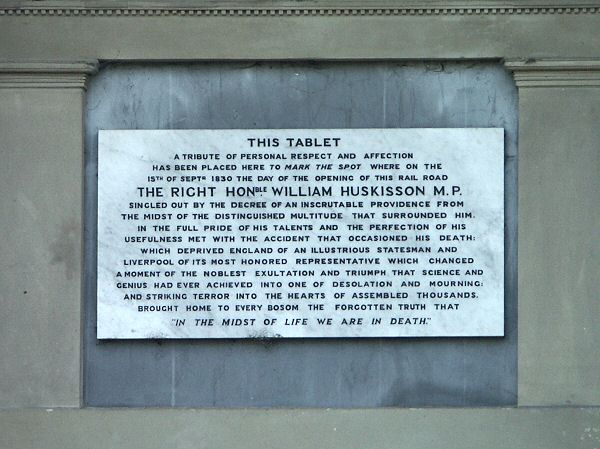 Puerile rap-rock outfit Radiohead have bent reality out of shape and turned revolution on its head by giving their new album away for whatever people see fit to pay. Maybe you heard.
Puerile rap-rock outfit Radiohead have bent reality out of shape and turned revolution on its head by giving their new album away for whatever people see fit to pay. Maybe you heard. It’s a great gimmick, so great in fact that they’ve got a mention on GMS. But, serious-minded reader, I’ve gone into this and, you know, one can go too far. First the Charlatans, then the Oasis and the Nine Inch Nails, and now the sodding Jamiroquai have suggested they’ll do the same. For morons like myself on the internets, this is purely bad news. If 1% of the rabid nonsense written about In Rainbows is to be believed, it’s about a million points double-plus good, and gets better to the power of jam doughnuts every time you listen to it. This means I’ll be heading to their website and repeat-buying it for incrementally large amounts in a perpetual self-orgy of altruistic gratefulness. And what’s more, if some sort of state regulator doesn’t step in, who’s to stop me forking out £1234.56 for the Diplo remix of Justice’s cover of the latest Of Montreal single because of a particularly breathless entry on neongogglespoon.blogspot.com? Or locking myself into an open-ended payment scheme to watch videos of R. Kelly swearing and wearing a false beard? Mo money, mo problems, like BIG said.
 As a solution, GMS suggests we follow in the footsteps of nineteenth-century British statesman William Huskisson. No, not by stepping under a moving train. Shortly before he met his maker in the form of Stephenson’s Rocket, Huskisson masterminded the imposition of a sliding scale of duties on corn. Under this system, when the supply of corn to us British folk was good, and prices were cheap, the full tax would be in place. But in a bad crop, as the price rose, the duty would fall – hence stabilising prices for the consumer. Moderate, liberal and progressive in theory, disastrous in practice – corn merchants kept supplies off the market, and put out their poorest-quality grain, in order to force prices up and escape taxes, destroying the stability of the currency and popular faith in the justice of the market. Something similar happened with mid-western farmers and the gold standard with the onset of global competition and cyclical depressions in the later nineteenth century, but I forget how that went. Never mind, eh?
As a solution, GMS suggests we follow in the footsteps of nineteenth-century British statesman William Huskisson. No, not by stepping under a moving train. Shortly before he met his maker in the form of Stephenson’s Rocket, Huskisson masterminded the imposition of a sliding scale of duties on corn. Under this system, when the supply of corn to us British folk was good, and prices were cheap, the full tax would be in place. But in a bad crop, as the price rose, the duty would fall – hence stabilising prices for the consumer. Moderate, liberal and progressive in theory, disastrous in practice – corn merchants kept supplies off the market, and put out their poorest-quality grain, in order to force prices up and escape taxes, destroying the stability of the currency and popular faith in the justice of the market. Something similar happened with mid-western farmers and the gold standard with the onset of global competition and cyclical depressions in the later nineteenth century, but I forget how that went. Never mind, eh?
Though it didn’t work for Huskisson and his corn, that’s not to say it wouldn’t work for Korn, and for all of those cheeky pop-rock bands that people go on about. So here goes:
Let’s have a few firm markers. You can pick up The Bends or OK Computer for £4.50 at Avid Records in
Charlatans next: I picked up their best-of, Melting Pot, in a shop called Cash Converters for £3. That’s fair, as I listen to it once every three years, each time recalling that they had a few cracking singles, and were pretty consistent until Tim started thinking he was a country Curtis Mayfield. New Charlatans album, though? 65p.
Like Radiohead, NIN made two great records. There’s no further point in them. New NIN record: £0.00.
Oasis is where the sliding scale really kicks in. If oasis.com offered me £4 to listen to a 40-minute album, I’d agree. Per-minute, that equates to just above the minimum hourly wage, so I could choose whether to get on with some work, or do the hoovering, with it playing in the background. Multi-tasking.
Listening to a Jamiroquai album would count as work, due to the general unpleasantness involved. So dancingwankerinahat.com would have to beat my standard wage and offer me £10 for 40 minutes, or £15 p/h. Which would be alright, I reckon, because the guy’s shitting cash.
For the penny-pinched listener, hopefully, the impulses of aural pleasure and the need for cash would balance out: for instance, I might like to pay a little, often, for my weekly half-arsed but intermittently-entertaining Lil’ Wayne mixtape; in the long-term, this might cost the same as paying a lot, occasionally, for a rarer, more valuable commodity, like a My Bloody Valentine album, or a Radiohead song with a tune.
In either case, pleasure, appreciation and expense could be budgeted. I could offset it piece-by-piece, by downloading and listening to every Jim Jones mp3 posted on nahright for a couple of months. Or I could do it in one fell swoop, perhaps by spending an hour in the dark thinking about Akon. Mmmmm, Akon.
Akon, meanwhile, is thinking about you.
The basic point being, Radiohead’s system gives the listener rights and freedoms. What listeners also need are duties and responsibilities. Huskisson's sliding scale would force them to evaluate their consumption of art, and to atone for it through a cash nexus. This would leading to a keener appreciation of the value of good music, and of the sheer fetid stinking offensiveness of Jamiroquai.
I haven’t really thought this through, it occurs to me, so if anybody’s willing to try, let me know whether it works out. Also, if anybody would like to explain why In Rainbows is any good, drop a comment, because I'm baffled and my head hurts.
1997>2007
Exhibit N
Radiohead - 'Lucky' (live at the Glastonbury Festival)
Previously on '97 mentality






No comments:
Post a Comment